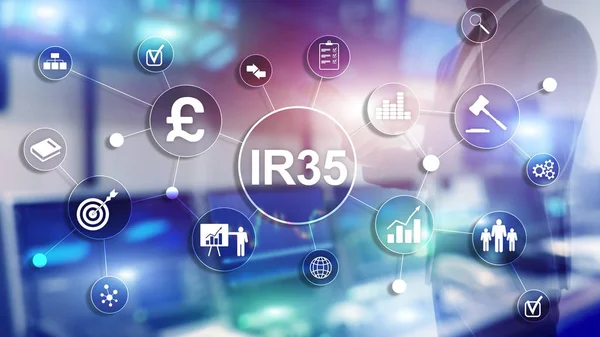From next April, IR35 status is going to be placed on EMPLOYERS within the medium to large private sector. Currently, the onus is on contractors to understand and report their IR35 status, and only within the public sector.
In a landslide case, TalkSPORT presenter Paul Hawksbee has been ordered to pay HMRC £143,126 in unpaid tax and NICs. This relates to his 18 year employment whereby he presented for the same radio show, receiving his pay through his company Kickabout Productions Ltd; whilst acting as self employed.
Mr Hawksbee has been proven to fall foul of the IR35 legislation, whereby an employee has to be given employment rights such as sick leave, holiday pay and pay taxes as any other employee would.

HMRC used the following to make their decision:
- MOO: Mutuality of Obligation and Control findings: The radio show had control over how and where Mr Hawksbee performed his work.
- He was required to work weekdays for 44 weeks of the year for the same radio company; very clearly an indicator of a hypothetical contract of employment.
- The first of the two contracts reviewed prohibited Hawksbee from working for any other UK radio broadcaster during the term of the contract. Although, he was allowed to do work which did not interfere with his talkSPORT duties. This forms an obligation, which would not be in place if he were self-employed.
About IR35
- Also known as "Off-payroll rules" or "the intermediaries legislation"
- Often involves a "self-employed" individual working through an intermediary agency: A managed service company (MSC) or Personal services company (PSC)
- Currently: Intermediaries and service agents within the PUBLIC sector, must determine their contractors status for IR35 and pay any applicable taxes over to HMRC.
- From April 2021: The company (client) who engages with the intermediary or service company must determine the IR35 status of their contractors and pay the correct tax and NI. Public and private sector. Private sector: Medium and large businesses. Small businesses are still exempt.
- The responsibility is on the client only if they meet 2 of the following conditions:
- They have an annual turnover of more than £10.2 million
- They have a balance sheet total of more than £5.1 million
- They have more than 50 employees
Who the rules apply to
-
You may be affected by these rules if you are:
- a worker who provides their services through their intermediary
- a client who receives services from a worker through their intermediary
- an agency providing workers’ services through their intermediary
Comments
Post a Comment